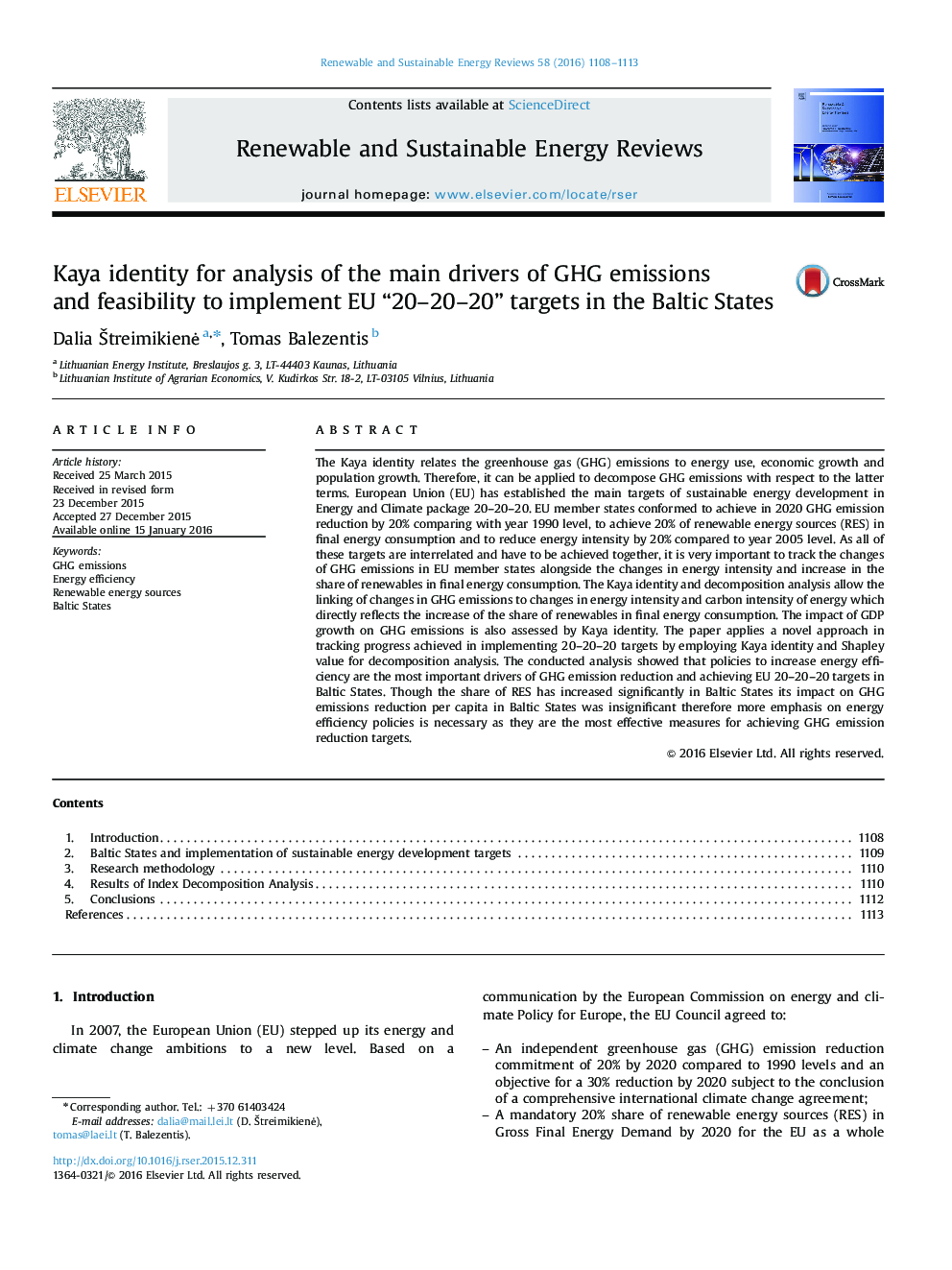| کد مقاله | کد نشریه | سال انتشار | مقاله انگلیسی | نسخه تمام متن |
|---|---|---|---|---|
| 8114471 | 1522327 | 2016 | 6 صفحه PDF | دانلود رایگان |
عنوان انگلیسی مقاله ISI
Kaya identity for analysis of the main drivers of GHG emissions and feasibility to implement EU “20-20-20” targets in the Baltic States
دانلود مقاله + سفارش ترجمه
دانلود مقاله ISI انگلیسی
رایگان برای ایرانیان
کلمات کلیدی
موضوعات مرتبط
مهندسی و علوم پایه
مهندسی انرژی
انرژی های تجدید پذیر، توسعه پایدار و محیط زیست
پیش نمایش صفحه اول مقاله

چکیده انگلیسی
The Kaya identity relates the greenhouse gas (GHG) emissions to energy use, economic growth and population growth. Therefore, it can be applied to decompose GHG emissions with respect to the latter terms. European Union (EU) has established the main targets of sustainable energy development in Energy and Climate package 20-20-20. EU member states conformed to achieve in 2020 GHG emission reduction by 20% comparing with year 1990 level, to achieve 20% of renewable energy sources (RES) in final energy consumption and to reduce energy intensity by 20% compared to year 2005 level. As all of these targets are interrelated and have to be achieved together, it is very important to track the changes of GHG emissions in EU member states alongside the changes in energy intensity and increase in the share of renewables in final energy consumption. The Kaya identity and decomposition analysis allow the linking of changes in GHG emissions to changes in energy intensity and carbon intensity of energy which directly reflects the increase of the share of renewables in final energy consumption. The impact of GDP growth on GHG emissions is also assessed by Kaya identity. The paper applies a novel approach in tracking progress achieved in implementing 20-20-20 targets by employing Kaya identity and Shapley value for decomposition analysis. The conducted analysis showed that policies to increase energy efficiency are the most important drivers of GHG emission reduction and achieving EU 20-20-20 targets in Baltic States. Though the share of RES has increased significantly in Baltic States its impact on GHG emissions reduction per capita in Baltic States was insignificant therefore more emphasis on energy efficiency policies is necessary as they are the most effective measures for achieving GHG emission reduction targets.
ناشر
Database: Elsevier - ScienceDirect (ساینس دایرکت)
Journal: Renewable and Sustainable Energy Reviews - Volume 58, May 2016, Pages 1108-1113
Journal: Renewable and Sustainable Energy Reviews - Volume 58, May 2016, Pages 1108-1113
نویسندگان
Dalia Å treimikienÄ, Tomas Balezentis,